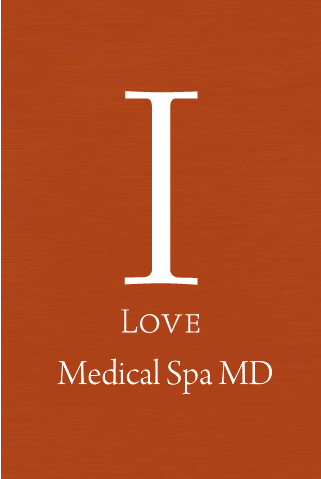Most cosmetic clinics, and now almost every medical practice, asks for patient reviews and testimonials. Make sure they're powerful by asking the right questions.
You're asking for testimonials, and if you follow up and pester your patients you're getting them.
However, there's a problem that most clinics have. The testimonials you're getting are powerless.
Testimonials are really just very short stories, and that's how you should be treating them. But if you look at your testimonials they come across as just pablum. These milquetoast testimonials are what you're left with if you don't understand how to ask the questions that allow your patients to give you memorable and powerful endorsements, and that start's with how you ask.
We're going to pump up your testimonials but helping you ask the right questions, in the right way.
5 questions to get a powerful patient testimonial:
- What was your main concern about buying this treatment?
- What was the result of buying this treatment?
- What specific result did you like most about this treatment?
- What are 3 other benefits of this treatment?
- Would you recommend this treatment to your friends? If so, why?
You'll also want to follow up with : Is there anything you'd like to add?
Note: you'll change "treatment" to a specific service: Botox, Restylane, liposuction, etc. Specific is good. There's no need to shy away from saying "buy" or "bought" or "purchased". Many of the concerns that your testimonials will directly address will be about "buying",
Also, make sure that you're ask about the objections and concerns that the patient overcame to buy. It's critical information that both elevates your testimonial and helps you identify concerns that you can address with your marketing and consultations.
Why these 5 questions work
Let's take a look at why we want to ask each of these 5 questions.
1. What was your main concern about buying this treatment.
You're going to ask this question because no matter how popular or safe a treatment ins, in the patient's mind there's always a concern. It could be money, time, pain, outcome, or almost anything. It could be all of those.
When you ask this question it brings out those concerns, and it goes further. When the patient searches her memory to think through what may have been a deal-breaker, they'll come up with a number of things that you may not have considered to be relevant before.
There is always a concern. So, when the patient brings up this concern it presents an angle that's unique, personal, and dramatic. A concern that other patients will relate to directly.
2. What was the result of buying this treatment?
You want to ask this question to show how the obstacle or concern was overcome. When a patient answers this question, she talks about why the treatment was worth it despite the concerns.
3. What specific result did you like most about this treatment?
Here's where we start digging deeper. "Specific" is the key word. If you ask a patient to focus on the benefits of the treatment they'll provide a vague 'overview' type of answer that may be nice, but it won't move anyone. That's why you want to focus on a single result that the patient liked most. This brings out the one feature and the patient will be much more explicit
4. What are 3 other benefits of this treatment?
Since you already asked about the primary benefit from the treatment, now you can go a little wider, adding color to whatever else the patient liked about her results.
Depending upon the treatment you can substitute any number, 2 or 1, or even eliminate the number completely, but the number does make it easier for your patient to try and address the question. It let's her focus on a limited number of factors and ranks them for you in what the patient found most useful.
5. Would you recommend this treatment? If so, why?
Psychologically this question is important. When a patient makes a recommendation an they are personally tied to it, there's more at stake for them. This ties to the way that they think about their own integrity. Unless the patient feels strongly they won't be forward about recommending it, and when she does recommend it, she communicates clearly to perspective patients, "Hey! I recommend this and here are the reasons why!"
Bonus: Is there anything you'd like to add?
Most of the testimonial has already been addressed but here's where you may catch something that the patient overlooked or thought differently about. There's never any harm in picking up a few last tidbits after the first questions have got the patient thinking. Occasionally you'll find that this last answer is where you really illicit something great.
Using testimonials to discover and address patients objections
The way that we're looking at constructing testimonials brings us to the reason behind the methodology; the testimonial actually answers the buying objections. When we ask the patient, "What was the obstacle that would have prevented you from buying this treatment?", the "obstacle" the customer brings up is going to be the concerns that we'll address in our marketing and consultations.
We should plan our testimonials to directly defuse each objection
Let's just take filler injections; Restylane, Juvederm, etc. If you talk to the average potential patient you'll hear any number of objections:
- It's too expensive. / I'll get stuck on an expensive treatment program forever.
- I'm afraid of needles and pain.
- I can get it cheaper somewhere else.
Let's assume that these are the three main objections. If you're asking the questions above, what are the testimonials that you capture going to say?
- I thought it was too expensive, but (here's why it was worth it).
- I'm afraid of needles, but (here's what happened and why I'm not afraid now).
- I thought about getting it cheaper somewhere else, but (here's what I found).
Each testimonial is a mirror image of each objection
You may know it's coming. You may have heard it often before and addressed it early in your marketing materials and sales copy, but new patients get a third-party perspective when they see your current patients defusing their objections in your testimonials.
A third party is always far more believable to your potential customers, and because each of these testimonials is linked directly to an objection, it systematically reduces the risk.
How do I control the testimonial?
You may want to try and exercise control of your testimonials or give guidance to drive patients towards specific outcomes. You may want to talk about your length of time performing fillers, you education, or awards, but your patient may want to talk about price. So how do you control what your patient says?
Er... you don't.
You're part is constructing the questions. If you're doing this correctly you don't need to control the responses or the process. But that doesn't mean that you can't exert some influence on the direction that those responses take.
Start with the key objections you know you need to address
When you reach out to the patient. Ask her if cost, pain, or results were one of her big objections. If she says yes, follow up to find out the specifics. But if she says no, and mentions a completely different issue, follow up and run that objection to ground.
For example, a patient may say, "A friend had it done and it didn't look natural."
That feedback reveals an objection you hadn't considered, and it may be an objection that you haven't been addressing yet.
Examine it carefully, but you many decide that the new objection isn't worth pursuing and you can't use it. No problem. If that's your decision there will always be more patients who get the angle you're going for.
This process will extract the exact buying objections and testimonials that will help you defuse key objections. The result is that the testimonial is going to do some real grunt work for you in overcoming the fears and objections of the patients you're marketing to.
Get believable testimonials that are complex and detailed
Testimonials are among your most powerful sales and marketing tools simply because they come from patients, not you. They're told from the patients view point, about their concerns, and the results that they achieved. When a patient produces a testimonial that is rich in detail and emotion, and is believable it's done it's job.
















